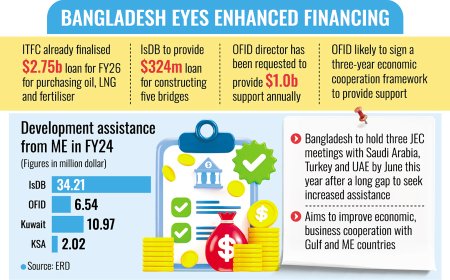Salehuddin attributes persistent inflation to extortion
Salehuddin attributes persistent inflation to extortion

Finance Adviser Salehuddin Ahmed stated yesterday that inflation remains stubbornly high despite reductions in tariffs on various goods, attributing the issue to widespread extortion within the supply chain. Speaking at the International Business Forum of Bangladesh (IBFB) annual conference at Gulshan Club, Ahmed noted, “The significant gap between production costs and consumer prices is alarming, largely due to extortion at multiple levels.”
He highlighted how goods often change ownership three to four times while still being transported in the same truck, describing this as extortion rather than legitimate middlemen activities. Ahmed criticized the ease with which extortion networks form, in contrast to the challenges of reaching political compromises.
He acknowledged the central bank’s efforts to curb inflation by raising policy rates, which address the demand side, but emphasized that the supply-side issues remain difficult to resolve.
At the same event, Debapriya Bhattacharya, a distinguished fellow at the Centre for Policy Dialogue, warned that public patience might wane if the interim government fails to deliver economic relief and maintain law and order. He called for an effective medium-term plan to rebuild confidence.
Ahmed also revealed the interim government’s commitment to separating tax policy from tax administration, explaining, “We’ve decided in principle to ensure that those who create tax policies are not responsible for tax collection. But this will take time.”
He described the economy inherited by the interim government as riddled with corruption, with regulatory failures in institutions like the Bangladesh Bank and the National Board of Revenue contributing to the problem. However, Ahmed argued that the business community and financial institutions also bear responsibility for violating norms, rather than placing all the blame on policymakers.
Ahmed noted that some business figures wield disproportionate power, owning industries, media, and parliamentary seats, which complicates efforts to address systemic issues.
He highlighted improvements in the previously crippled banking sector but acknowledged ongoing challenges in the capital market. Ahmed criticized the imposition of floor prices, which hindered natural corrections, and defended the stock market commission’s efforts to penalize offenders based on past investigations.
Although painful in the short term, he argued that these measures would ultimately benefit investors. He added that the government is considering reducing capital gains tax and curbing excessive tax exemptions to balance fairness and fiscal responsibility.
Bhattacharya underscored the need to address corruption and fix the country’s data ecosystem, pointing to inflated figures in exports, GDP, and employment data. He criticized the stagnation of private investment, which remained at 31-32% of GDP despite reported economic growth of 7%, calling for greater competitiveness.
Reed J. Aeschliman, mission director of USAID, emphasized the importance of trade over aid for Bangladesh’s transition to higher-middle-income status. IBFB President Humayun Rashid and Founding President Mahmudul Islam Chowdhury also contributed to the discussion.
What's Your Reaction?




















































































